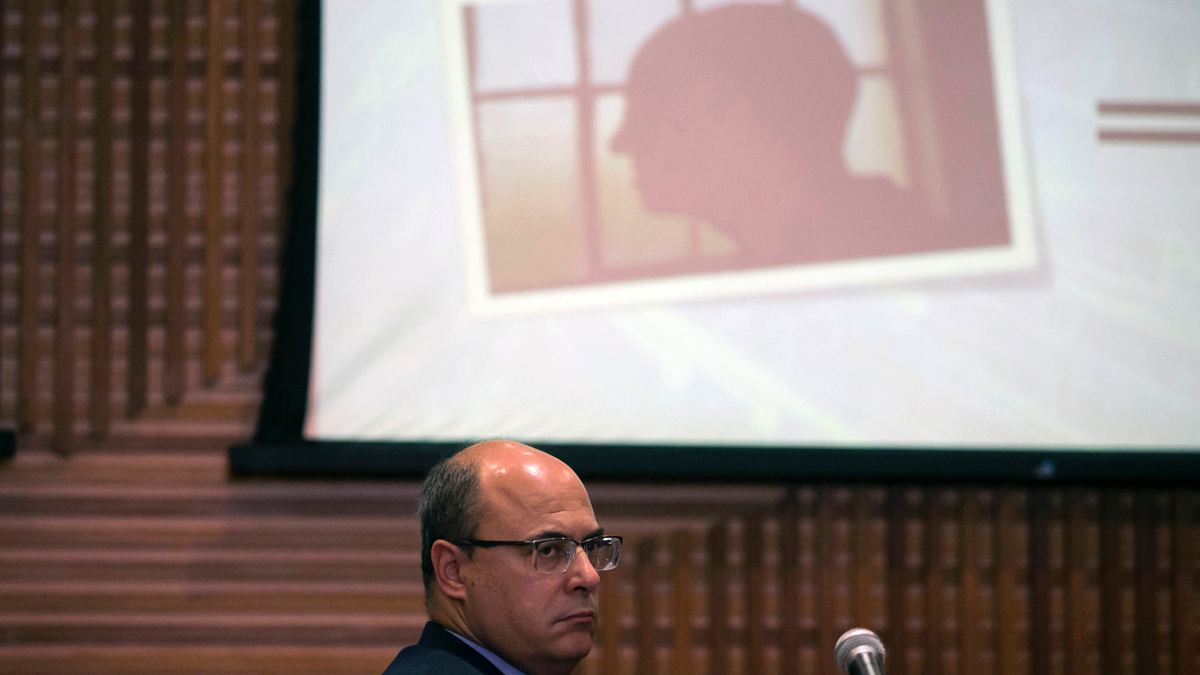
FILE - In this March 12, 2019 file photo, Rio de Janeiro state Gov. Wilson Witzel attends a press conference regarding the arrest of two suspects in the killing of councilwoman Marielle Franco, at Civil Police headquarters in Rio de Janeiro, Brazil. The human rights commission of Rio de Janeiro’s legislative assembly said in a letter sent Tuesday, May 8, 2019, that it is blaming Witzel for a surge in police killings. (AP Photo/Bruna Prado, File)
RIO DE JANEIRO – The head of the human rights commission of Rio de Janeiro's legislative assembly is blaming state Gov. Wilson Witzel for a surge in police killings, which totaled a record 434 in the first three months of the year.
Legislator Renata Souza said in a letter sent Tuesday to the U.N. special investigator on extrajudicial killings that Witzel has made statements "legitimizing" police violence in the state's slums and suburbs.
Souza criticized Witzel's campaign promise to use helicopters as a platform for sharpshooters, who could target anyone carrying a weapon.
"Rio's biggest problem is that there is no public security policy," Souza said in a separate statement. "What we have, is a governor who thinks he is a vigilante, and says that the only security protocol applicable in his government is to aim and shoot in the head."
The letter came a few days after Witzel posted a video of himself flying in a helicopter with police officers aiming rifles at residential areas below.
Souza and other critics say the shooting of suspects from helicopters is illegal, and can only be justified in very specific cases, such as when victims are held hostages.
Witzel defended his security strategy Wednesday at an event attended by far-right President Jair Bolsonaro, a political ally.
To confront "the absolute degradation and unacceptable violence" in the state, there is no other option but to use "the maximum toughness in the fight against organized crime," Witzel said.
Witzel is accustomed to describing drug traffickers who operate in the state as "narco terrorists" that should and will be treated as such.
Souza's letter to the U.N. also cited recent cases in which the police and armed forces are accused of human rights abuses, such as the killing of a musician whose car was shot 80 times as he was driving to a baby shower with his family. Authorities are investigating the case and say the soldiers confused the car with that of criminals.
Authorities are also investigating the killing of 13 individuals by police officers in February in Rio's Fallet-Fogueteiro slum. Residents said the victims had already surrendered when the police started shooting. Investigators found 120 bullet marks on the walls of the house where the bodies were found.
In her letter, Souza asked the U.N. to send its recommendations to the Brazilian state and to ask authorities for an official statement.







































